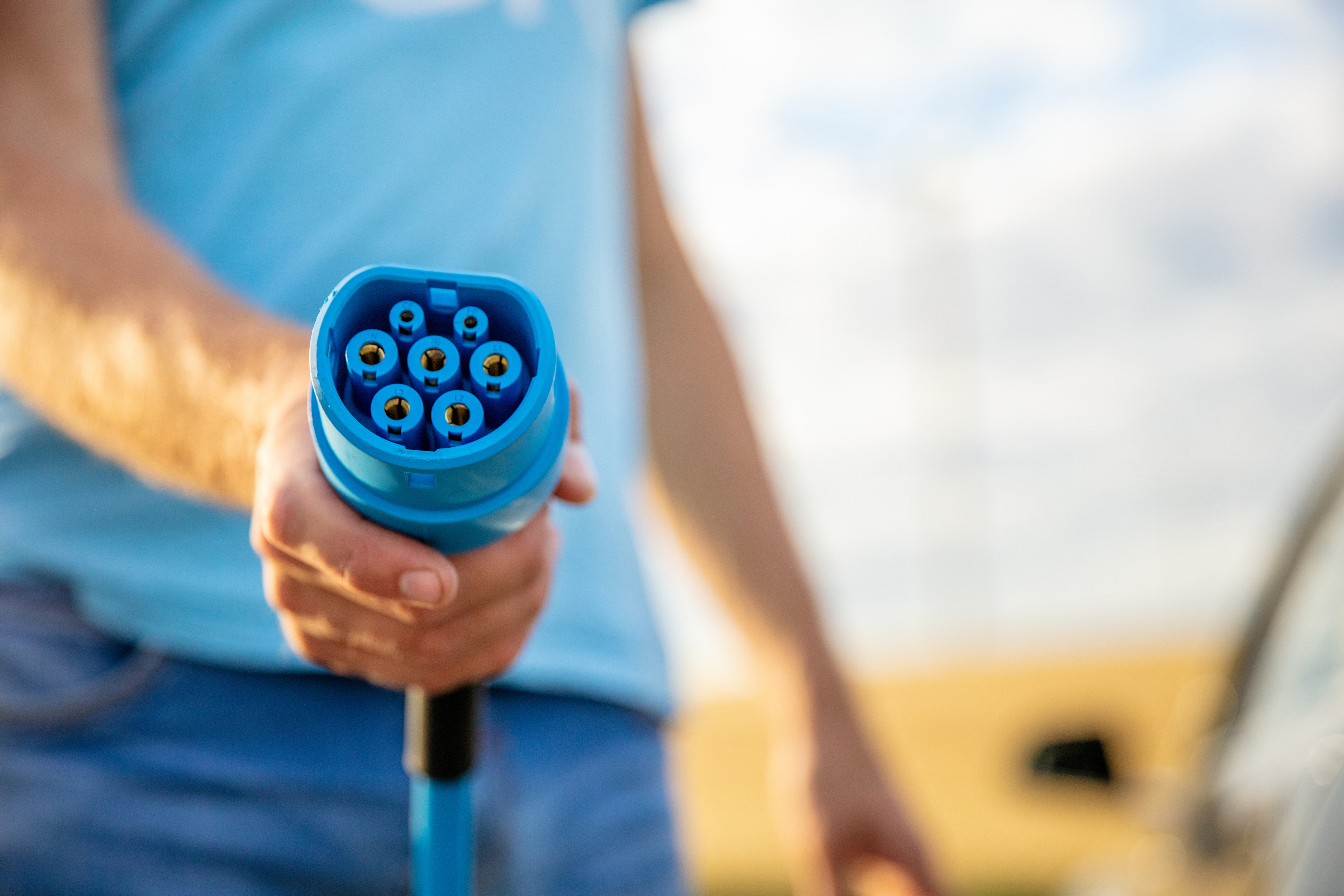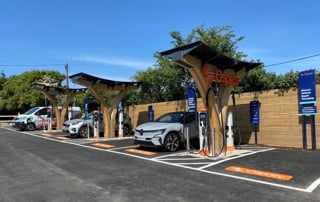The ban on the sale of new internal combustion engine (ICE) cars and vans from 2030 has been scrapped, the Prime Minister has announced.
In what he described as “a new approach to achieving net zero”, Rishi Sunak said that it would be pushed back by five years to 2035.
The Government has not clarified whether hybrid vehicles will still be able to be sold from 2035 for a further five years, as they were in the original phase out date.
When it first announced the 2030 ban, ministers said that they would continue to allow the sale of hybrid cars and vans that can drive a “significant distance with no carbon coming out of the tailpipe” until 2035.
However, the Department for Transport (DfT) could offer no further detail following the PM's announcement.
Neither could it clarify what may happen to the 2040 phase out date for trucks.
"It feels as though the can has been kicked down the road in a fairly arbitrary fashion," Paul Hollick, AFP
Defending the change, Sunak explained that the Government was "working hard" to make the UK a world leader in electric vehicles (EVs).
“I’m proud that we’ve already attracted billions of new investments from companies like Tata's Jaguar Land Rover gigafactory, and I expect that by 2030, the vast majority of cars sold will be electric... because the costs are reducing, the range is improving the charging infrastructure is growing," he said
“People are already choosing electric vehicles to such an extent that we're registering a new one every 60 seconds.
“But I also think that at least for now, it should be you, the consumer that makes that choice, not Government forcing you to do it, because the upfront cost still is high, especially for families struggling with the cost of living.
“Small businesses are worried about the practicalities, and we’ve got further to go to get the charging infrastructure truly nationwide.”
He added: “We need to strengthen our own auto industry so we aren’t reliant on heavily subsidised carbon intensive imports from countries like China.
“So, to give us more time to prepare, I'm announcing today that we’re going to ease the transition to electric vehicles, you'll still be able to buy petrol and diesel cars and vans until 2035.
“We're aligning our approach with countries like Germany, France, Spain, Italy, Australia, Canada, Sweden, and US states such as California, New York and Massachusetts.”
The change to the phase out date comes just three years after the then PM, Boris Johnson, announced that new ICE cars and vans would not be allowed to be sold in the UK from 2030.
The delay of five years brings the UK in line with the EU's plans to ban the sale of new fossil fuel cars.
The EU's plans were unveiled last year and sought a reduction to zero CO2 emissions from new cars sold in the bloc by 2035.
MEPs voted to require carmakers to cut their average fleet emissions by 15% in 2025, compared to 2021, by 55% in 2030, and by 100% in 2035.
Fleets 'irratated' by date change
Paul Hollick, chair of the Association of Fleet Professionals (AFP), says that, while some of its members will be pleased about the delay, because it takes the pressure to electrify away for the time being, the reaction that it is seeing across the fleet sector to this news is largely negative.
"The motor industry and their fleet customers have invested billions towards meeting the 2030 electrification deadline and while there are serious operational issues that need to be tackled, especially when it comes to electric vans, the assumption within our membership was that the government would need to provide more support, not move the goalposts," he explained.
“Where we go from here is difficult to say. The global motor industry doesn’t hinge on what the UK Government does, so this is unlikely to do much to change future production plans away from electric vehicles (EVs) towards petrol and diesel while presumably, company car benefit in kind taxation will stay in its current form and continue to encourage fleets to electrify."
He continued: "In 2030, the vast majority of new cars on sale in the UK, and a substantial element of the used car parc, will almost certainly be battery powered.
“The overwhelming feeling is probably one of irritation. Fleets have done some incredible work when it comes to electrification and it feels as though the can has been kicked down the road in a fairly arbitrary fashion by a Government that sees this move as politically expedient.
"There are, of course, a range of dangers. The value of existing EVs may be negatively affected; investment in charging infrastructure may fall away; and there may just be something of a manyana environment around electrification for the next few years.
"However, this must be resisted and it is especially important the local authorities are properly funded to ensure the installation of on-street chargers becomes widespread.”
Reaching net zero in a 'more proportionate' way
The change to the UK's fossil fuel ban, however, was just one of several key green pledges that the PM has watered down.
The timeline on replacing gas boilers is being relaxed, and a boiler scrappage grant is being increased.
Sunak said: “It cannot be right for Westminster to impose such significant costs on working people, especially those who are already struggling to make ends meet, and to interfere so much in people's way of life without a properly informed national debate.”
He insisted that the Government was still committed to reaching net zero carbon emissions by 2050 but in a "more proportionate way".
"We need to change the debate," he explained. "We're stuck between two extremes. Those who want to abandon that netzero all together, because the costs are too high, the burdens are too great, or in some cases, they don't accept the overwhelming evidence for climate change at all.
"And, then there are others who argue with an ideological zeal, we must move even faster and go even further, no matter the cost or disruption to people's lives, and regardless of how much quicker we're already moving than any other country.
"Both extremes are wrong. Both fail to reckon with the reality of the situation.
"Yes, net zero is going to be hard and will require us to change, but in a democracy, we must also be able to scrutinise and debate those changes, many of which are hidden in plain sight in a realistic manner.
"This debate needs more clarity, not more emotion. The test should be do we have the fairest credible path to reach net zero by 2050 in a way that brings people with us."

Mixed reaction from carmakers
Ford said that delaying the switch away from ICE cars and vans would undermine the steps it has taken to get ready for the change.
Lisa Brankin, Ford UK chair, explained: "Ford has announced a global $50 billion commitment to electrification, launching nine electric vehicles by 2025.
"The range is supported by £430 million invested in Ford’s UK development and manufacturing facilities, with further funding planned for the 2030 timeframe.
"This is the biggest industry transformation in over a century and the UK 2030 target is a vital catalyst to accelerate Ford into a cleaner future.
"Our business needs three things from the UK Government: ambition, commitment and consistency. A relaxation of 2030 would undermine all three."
However, Jaguar Land Rover welcomed the change, calling it "pragmatic" and said it brings the UK in line with other nations.
The company says it is committed to be fully net zero by 2039 and is looking forward to "building the much needed infrastructure" to help people move to an "exciting electric future".
Toyota, which has plants in Burnaston, Derbyshire, and Deeside, north Wales, followed Jaguar Land Rover in embracing the "pragmatic move", saying the announcement gives the industry the "clarity" it has been asking for.
Mike Hawes, chief executive of the Society of Motor Manufacturers and Traders (SMMT), said: “The automotive industry’s commitment to a zero-emission new car and van market remains unchanged. Net zero cannot be achieved without this sector’s decarbonisation.
"The Prime Minister has confirmed that a mandate to compel the sale of EVs – the single biggest mechanism to deliver net zero – will be published shortly, starting in January 2024.
"Manufacturers will continue to put innovative new models on the market but consumers need encouragement to buy more than ever."
He argues that the Government's announcement must be backed up with a package of "attractive incentives" and measures to accelerate charging infrastructure to give consumers the "confidence to switch".
"Carrots move markets faster than sticks,” he added.
Gerry Keaney, chief executive of the British Vehicle Rental and Leasing Association (BVRLA), acknowledged that the announcement will "frustrate many while offering relief to others".
He said: “Those that have made huge financial and strategic investments in this technology and mobilised their customers and workforces for decarbonisation will be worried that Government is applying the brakes.
“Others will be grateful for the extra breathing space this delay provides. They will be hoping that it gives more time for costs to come down and consumer attitudes to change.
“We await the further details that will show the true impact of today’s announcement. It is important that progress isn’t paused and momentum can be maintained.
"Either way, everyone is likely to have less trust in the Government’s net zero strategy and will think a lot harder before committing to any of its future strategies or roadmaps.”
Philip Nothard, chair of the Vehicle Remarketing Association (VRA), described the whole situation as a "mess".
“While it is fair to say that within remarketing, there are many sceptics who have serious doubts about the present viability of EVs in the used car market, almost everyone in the sector has still been working towards the 2030 deadline in a diligent and committed manner, often making substantial investments along the way," he said.
“The Government’s move has, from the feedback we’ve seen, left many of those people feeling confused and resentful.
“The Government’s argument is that this five-year delay will allow more time for electrification to take place and reduce costs to private motorists, but that shows a fundamental misunderstanding of how the motor industry works.
“Many or most of the decisions about the cars and vans on sale in the UK in 2030 have already been finalised, and have been made based on global factors.
“What the UK Prime Minister has done today will change little in terms of the new and used cars being sold here during the next decade or more.
“In the shorter term, it is possible that this move will bring more disruption to the values of electric vehicles, purely because buyers will be confused about where the market is heading which, in turn, will reduce the appetite for electrification, creating a kind of negative feedback loop.”
Read more industry reaction to the delay to the 2030 new car and van fossil fuel ban.
Do you agree with the PM's decision to delay the ban on the sale of new petrol and diesel cars and vans until 2035? Vote in our poll.






















Login to comment
Comments
No comments have been made yet.